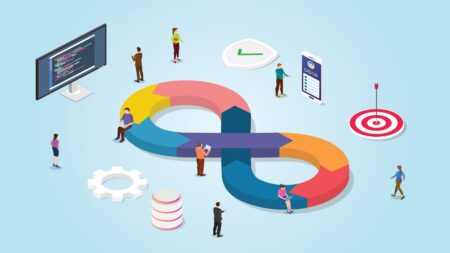At first glance, cybersecurity models among cloud providers may seem like near carbon copies of each other, but a bit of digging can yield some real differences.
Search Results: procurement (327)
Microsoft’s comprehensive AI upgrades extend to every business function, with a focus on use case-specific offerings.
COVID–driven supply chain disruption has been reduced, but a host of other bad actors have taken its place. Here’s how practitioners can stay a step ahead.
IBM leveraged AI and data analytics to transform its supply chain into a cognitive supply chain, achieving massive savings and fulfilling all customer orders despite disruptions.
SAP CEO Christian Klein believes that customers are willing to pay up to a 30% premium for new GenAI capabilities, while Oracle’s top product executives argue against increasing prices for AI services, setting the stage for a pricing debate in the GenAI Revolution.
The challenges posed by the growing use of generative AI, including cost increases and sustainability concerns for data centers.
Generative AI industry-specific offerings in the cloud industry can enable businesses to transform and create new value for their customers.
SAP is expanding its successful RISE program to convince 25,000 of its on-premise customers to transition to the cloud.
In a discussion surrounding the Automation Anywhere Imagine conference, AWS exec Jagjit Dhaliwal explains how the companies are working together to help customers drive generative AI outcomes.
IBM introduces watsonx Code Assistant for Z, a generative AI tool aimed at simplifying COBOL code migration, preserving performance and security, and addressing the growing skill gap in maintaining legacy systems.
Despite a significant drop in market capitalization, Oracle’s cloud business continues to thrive, with strong customer confidence and robust Q1 cloud revenue growth.
Oracle’s Q1 results show conflicting perspectives, with the company’s leaders optimistic about its future and strong customer demand in its cloud business, while investors are displeased.
In today’s business landscape, the synergy between partners and sustainability drives transformative strategies across industries.
Technology partnerships are significant when it comes to harnessing AI capabilities, presenting both potential risks and opportunities, especially for smaller partners.
Organizations that can meet their customers’ need throughout all stages of the relationship are more likely to achieve important financial objectives — from lowering customer acquisition costs to increasing average value contract sizes to boosting profitability.
Building on its success with process mining, the airline Lufthansa built a custom application in house and plans an expansion of its use cases to include procurement functions.
Building on a solid base of cost savings in financial use cases, process mining is delivering major new benefits: optimizing ERP migrations and improving processes that directly impact customers.
Celonis co-CEO Alex Rinke lists scalability, innovation, and embedded knowledge as his firm’s top three differentiators in a discussion for Process Mining Battleground.
Celonis’ track record of delivering major savings for customers, innovations including object-centric functionality, and plans to tap generative AI highlight a discussion with co-CEO Alex Rinke.
SAP Signavio General Manager Rouven Morato explains how the company’s process mining capabilities empower customers with fast time to insight and adaptability. His insights are part of the Process Mining Battleground.





















